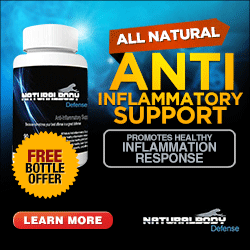Trademarks-What Is, and Is Not, Registrable
Trademarks may be notionally divided into two groups.
The first group are those trademarks able to be registered which include not
only those trademarks actually registered, but also those which could be
registered if their owners sought registration. The second group is those trademarks
that are inherently incapable of ever being registered.
Registrable
A trademark is able to be registered if it is either
distinctive of, or is capable of becoming distinctive of, the products or
services in respect of which the trademark application is lodged and with which
the owner of the trademark is connected in the course of trade.
Three general types of trademarks are specifically
permitted to be registered. These are the name of the person represented in a
special or particular manner, the signature of the trademark owner or of some
predecessor in his business, and an invented word.
An example of a name of a person represented in a
special way would be the surname MICHELIN spelled out with a number of small
motor vehicle tires forming each letter of the word. An example of a signature
is the signature of Johnny Walker appearing on that when a known brand of
whiskey. An example of an invented word is the trademark SARD in respect of
soap.
Unregistrable
Trademarks in the second group which are excluded
from registration are those which are words having a direct reference to the
character or quality of the products, and also those words which are, according
to their ordinary meaning, a geographical name, or a surname.
The most obvious example of a word that makes a
direct reference to the character of a product is the name of the product
itself. This TOPS would not be registrable for clothing since it directly
describes a particular type of clothing. However, a trademark such as TUB
HAPPY would be registrable in respect of clothing since, although it suggests
the clothes wash well, it does not directly describe that particular
characteristic. Similarly, a trademark such as PERFECTION would not be
registrable for any product since it directly describes the quality of the
product. Such a trademark that praises the product is said to be “laudatory”.
However, a trademark such as FANTA which is vaguely suggestive of ‘fantastic’
would be registrable since it is not a direct reference to the quality.
Some Examples
Examples of geographical names which are well known
trademarks but not registrable nevertheless are YORKSHIRE for plumbing
fittings and OXFORD for books.
In relation to surnames, one may well ask ‘How is it that surnames such as McDonald's and FORD are registered?’
The answer is that
although not initially a registrable trademark, because of the very
substantial level of sales able to be achieved by these organizations, what was
initially, an unregistrable trademark has been converted into a trademark
which has become distinctive through extensive use and therefore registrable
for that reason.
Other distinctive marks include logos, such as a three-lobed spiral device used by the International Wool Secretariat or the
three stripes on ADIDAS shoes.
Endnote
Generally speaking, numerals are not able to be
registered, although 4711 for perfume is an exception because of its extensive
reputation gained through sales. Similarly, letters of the alphabet are not
able to be registered unless they form a pronounceable word, as is the case
with a lot of three-letter trademarks such as LUX and FAB for washing powder.
Again, as a consequence of acquired distinctiveness arising through use, e.g.
ABC for television services







Post a Comment